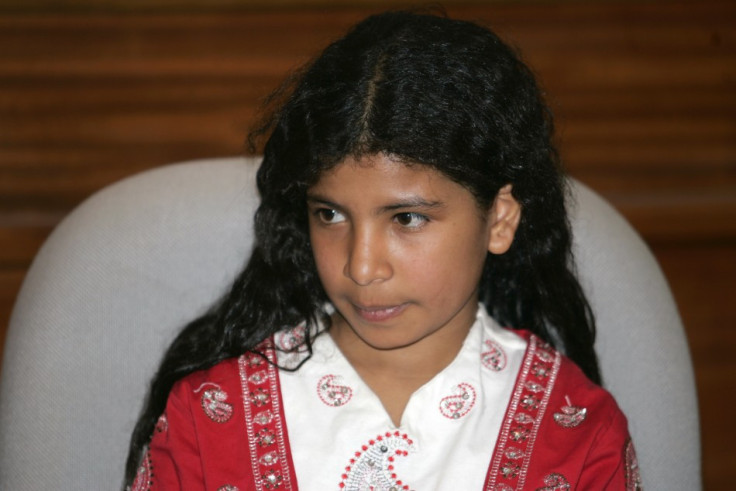Amina Filali a Moroccan Tragedy: Child Rape and Forced Marriage Exposed

The tragic case of Amina Filali, the 16-year-old Moroccan girl who took her own life after being forced into marriage with the man who raped her, has sparked an international debate about minors being forced into wedlock.
Ten million girls under the age of 18 are married every year. Former prime minister Gordon Brown, who has been campaigning along with his wife Sarah for education in developing countries, disclosed that 1.5 million of them are under the age of 15.
In Niger, 36 per cent of girls are married by the age of 15. India, with 45 per cent of under-18s married, has the highest number of child brides in the world.
Poverty, illiteracy and powerlessness are only some of the direct consequences of child marriages. Early pregnancy endangers health and often ends in the death of mother and baby. The lives of 166,000 infants could be saved if their child mother was able to delay birth, Brown calculated.
Complications during pregnancy and childbirth are the largest killer of girls aged 15 to 19 and account for 70,000 deaths a year.
The case of Amina
Amina killed herself by swallowing rat poison in her hometown of Larache in northen Morocco. One year ago, she was raped by a man who was 10 years her senior. The family agreed with a civil court ruling that she should marry her rapist in order to preserve their honour. But in the aftermath of the tragedy, the father denied the claims and said they were "advised" by the prosecutor to arrange a marriage with the man.
The practice, still common in some part of the Arab world, is reinforced by a Moroccan law that allows anyone who abuses a female minor to receive immunity from criminal charges if they marry the girl. Instead of jailing the rapist, the judge pushed marriage on Amina under Article 475 of a Moroccan law.
The minister of justice revealed that 41,098 marriages in 2010 involved female minors - an increase of 23.59 percent compared to 2009.
The Moroccan family code, adopted in 2004, should protect children from marriage. "The right to get married is acquired by men and women from 18 year old who enjoy full mental capacities," reads Article 19 of the code.
However, according to Article 20 of the same law minors can be married if the judge issues a special licence after hearings with the parents.
Divorced at 10, the case of Nujood Ali
Nujood Ali made the headlines in 2008 for being one the first Yemeni children who got a divorce after suffering a long period of abuse and violence at the hands of her husband. She was eight years old when she was made to marry the 30-year-old man. Nujood escaped and found refuge with a judge, Mohammed al-Għadha, who noticed her waiting on the steps of a court where she went to seek divorce.
Yemen ranks 14 in the list of top 20 countries for child marriage, according to a Unicef report. The percentage of women that are married before the age of 18 stands at 32 percent. Yemeni law allows girl of any age to wed but prohibits sex until the brides are considered "suitable for sexual intercourse".
Her example prompted an international campaign to ban child marriages around the world. Since then, an eight-year-old girl's marriage to a man in his 50s has been annulled in Saudi Arabia, in a case that attracted worldwide criticism. The Sunni country bans free association between the sexes and gives father the right to wed their children to whoever they like. The case triggered slow reforms in Saudi Arabia to stop marriages with underage children.
Islam
Marriage is viewed by many Arab countries with ancient tribal roots as a daughter's destiny. Relatives arrange marriages primarily to get rid of a mouth to feed and girls who refuse to agree to a forced marriage are often seen by their families as rebellious and shameful.
The UN states that about 5,000 women and girls around the world are murdered by their relatives each year for disobedience of their families' wishes.
The case of a 13-year-old Yemeni child bride who reportedly bled to death in 2010 after being tied down and forced to have sex with her 23-year-old husband sparked outrage within and outside the country.
But many Islamic officials and clerics refuse to accept a state-driven legal ban on child marriage, stating it would contradict the Quran's dictate. According to Islamic law, as soon as a girl reaches puberty she can choose whether to go on with a marriage or not, without waiting for the legal age.
They stress, however, that a woman should not get married before she is physically and mentally ready, as Islamic law adds that a wedding ought not to take place until the girl is physically fit to engage in sexual intercourse.
Morocco: Amina Filali Parents Accuse Village of Killing Her, Husband Denies Rape
© Copyright IBTimes 2025. All rights reserved.






















